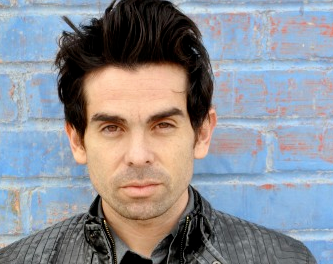I don't know about you, but I like it when things make sense logically. Example: All mortals age. I am mortal. Therefore, I age. These types of logical reasoning are often referred to as "syllogisms". There is a premise (All mortals age). There is a minor premise (I am mortal). And there is a conclusion (I age). Unfortunately, our corrupt minds are not infallible and can often come to faulty conclusions.

In his book Exegetical Fallacies, D.A. Carson shares how Philip B. Payne makes this error when examining 1 Timothy 3:11 and Acts 6:1-6. And while Payne did not state his position in syllogistic fashion, others have chosen to state Payne's position in a such fashion to help clarify position and difference. D.A. Carson states:
Payne suggests that becuase 1 Timothy 3:11 refers to female deacons, and two of the men chose as deacons in Acts 6:1-6 speak publicly and baptize converts, "presumably these activity could be part of the role of women deacons." Of course, Payne does not set forth his suggestios as a syllogism. Nevertheless, the inference he draws could be recast as a syllogism:
The seven men appointed in Acts 6:1-6 were deacons (the unstated premise). Some of the men mentioned in Acts 6:1-6 spoke publicly and baptized. Therefore all deacons, including women, could presumably speak publicly and baptize.
Even if we grant the exegetical debatable points (e.g., that the seven men in Acts 6:1-6 were deacons), the argument as here ste for is inadequate--whatever we conclude about the right or otherwise of women to speak publicly and baptize. It is inadequate because it illegitimately presupposes that in the minor premise the two men from the group of seven in Acts 6:1-6 speak publicly and baptize by virtue of their role as deacons.
In the New Testament, arguably teaching is irretriveably bound up within the role of the elder/pastor/bishop; it is far from clear that it is bound up with the role of the deacon. That others than elders taught in various settings is certain; but the fact that some deacons did so is not itself warrant for supposing that any deacon was authorized to do so simply because he or she was a deacon.
D.A. Carson goes on to give a clear example of this mistake.
All true Christians learn to love their enemies.
Mary Jo loves her enemies.
Therefore, Mary Jo is a Christian.
A "not necessarily" sort of thought should have popped up into our heads when that last stament was made. This is the same mistake that some have made with other passages in scripture.
Perhaps you've seen the same fallacious syllogism made by others. One area in which I've seen that happen is in the area of good works and deeds. It is true that Christians are to love others. It is true that Christians should care for the poor. But is it true that anyone who lives this way is a Christian? Is one a Christian/saved simply because one lives in "the way of Christ"--as some have put it? Some argue that this is so.
I have read some blogs in which the Christian author clearly makes this mistake. The argument goes like this: "Will God send an atheist to hell? Suppose this atheist feeds the poor, reaches out to the sick, loves his enemies and lives in the way of Christ, but does not believe in Christ or believe in God? Isn't their life demonstrating the same things that us repentant Christians demonstrate? Therefore they must be one of God's own." To put it in a syllogism:
1. (Premise) Those that are saved live in the way of Christ.
2. (Minor Premise) A particular atheist lives in the way of Christ.
3. (Conclusion) Therefore, this atheist is saved (even if they deny God and do not believe in Christ).
The Bible clearly shows the above syllogism to be false. A man is not saved simply by doing good works and being a good person or even imitating the morality of Christ. One is saved by repenting and trusting in the saving work of Jesus Christ which makes necessary a belief in God. Only then can one be put into a right standing and intimate relationship with God. Thus one has a proper motive for serving God and doing good works that glorify God.
Much more could be said on current fallacious syllogisms being made in Christendom, but I'll leave it at that. Hey, I may have even unknowingly made one in this post because...
All people make mistakes...
I am a "people"...
Therefore, I make mistakes.
















No comments:
Post a Comment